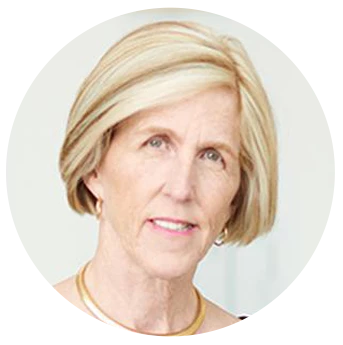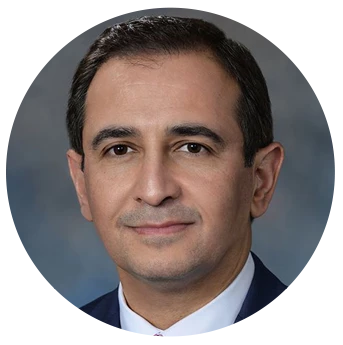
Joint meeting with Hepatobiliary Cancers: Pathobiology and Translational Advances
Fatty Liver Disease and Multi-System Complications
March 22-24, 2021 | 10:00AM EDT | 2:00PM UTC | 3:00PM CET*
*Program is in development and subject to change
Attention
The live portion of this conference has concluded and all presentations are now available for purchase on demand. Registrants to the live event may access this content anytime for up to 9 months following the event.
Free Access to On Demand Content to Scientists from Low-and Middle-Income Countries
Keystone Symposia welcomes the global scientific community and aims to connect researchers within and across disciplines to accelerate the advancement of biomedical and life sciences. This form may be used for scientists from low- and middle-income countries of all career stages to determine eligibility and request free access to scientific content presented during recent eSymposia events. If eligible, you will be sent an access code for the On Demand content of the eSymposia event(s) of interest.
The frequency of nonalcoholic fatty liver disease (NAFLD) has risen worldwide in parallel with the obesity epidemic; however, there are still no approved therapies. The more advanced form of the disease, non-alcoholic steatohepatitis (NASH), is associated with progressive fibrosis and an increased risk of hepatocellular carcinoma (HCC). In the last decade, genetic studies have identified new proteins that participate not only in the development of hepatic steatosis, but also disease progression to NASH, cirrhosis, and HCC. Meanwhile, research is starting to emerge describing underlying molecular pathways that mediate alterations in lipid and glucose metabolism, which leads to fat accumulation in liver. Therefore, the goals of this conference are to: 1) Explore the genetic contributions to NAFLD, and how these insights might reveal the sequence of events that cause NASH and cirrhosis; 2) Clarify the key molecular events in NAFLD and NASH, focusing on pathways that might provide therapeutic opportunities; and 3) Highlight emerging therapies for NASH. This conference comes at an opportunistic time, when several clinical trials are scheduled to conclude, providing critical data to enable scientists to refine research strategies for the future.
Pricing:
Regular Registration Rate: $275 USD
Student Registration Rate: $150 USD
Deadlines:
Abstract Submission:
‣ For Short Talk Consideration: Passed
‣ For Poster Booth: Passed
ePoster / SciTalk Submission: Passed
Financial Aid Application: Passed
*Abstract submission is required in order to submit an ePoster and/or Scitalk
#VKSFattyLiver21
Keynote Speakers

Helen H. Hobbs
University of Texas Southwestern Medical Center

Hashem B. El-Serag
Baylor College of Medicine
Speaking at this eSymposia
Noura S. Abul-Husn
Icahn School of Medicine at Mount Sinai, USA
Kendra K. Bence
Pfizer Inc., USA
Morris J. Birnbaum
Pfizer Inc., USA
Chuhan Chung
Gilead Sciences, USA
Eran Elinav
Weizmann Institute of Science, Israel
Hashem B. El-Serag
Baylor College of Medicine, USA
Henry N. Ginsberg
Columbia University College of Physicians and Surgeons, USA
Daniel A. Heller
Memorial Sloan Kettering Cancer Center, USA
Helen H. Hobbs
University of Texas Southwestern Medical Center, USA
Jay D. Horton
University of Texas Southwestern Medical Center, USA
Mitchell A. Lazar
Perelman School of Medicine, University of Pennsylvania, USA
Lei Ling
NGM Biopharmaceuticals, USA
Mark A. McNiven
Mayo Clinic, USA
Lopa Mishra
George Washington University, USA
Catherine Postic
INSERM, Institut Chochin, France
Maria Rescigno
Humanitas University, Italy
Alphonse E. Sirica
Virginia Commonwealth University, USA
Elizabeth K. Speliotes
University of Michigan, USA
Greg Steinberg
McMaster University, Canada
Tobias C. Walther
Harvard School of Public Health, USA
Hannele Yki-Järvinen
University of Helsinki, Finland
This new virtual meeting format came out of difficult circumstances, but your commitment to scientific progress is what inspired us to launch Keystone eSymposia. In these virtual meetings, we are capturing the same innovative essence of our in-person meetings that you've all created as a scientific community. Here, Debbie Johnson, our CEO, explains how we're going to do that.
The views expressed in this eSymposia are those of the participants and not necessarily of the participants’ organizations or of Keystone Symposia.
Donate to Keystone Symposia












